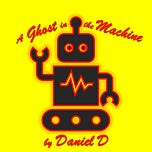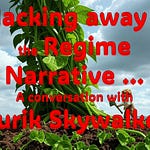Greetings and salutations, fellow weirdos, misfits, and heterodox thinkers! Welcome to another episode of A Ghost in the Machine, the Podcast. This time I discuss two excellent posts, Against the Psychologization of Philosophy, by
, and The Autism Horseshoe, by . These two essays complement each other quite well and raise some interesting issues. Why do we think the way we do? What do our beliefs, attitudes, and mental habits say about us? And is being neuro-atypical (a.k.a., a “weirdo”) actually a blessing in disguise?Are the causes of our beliefs psychological or logical? Well, obviously it can be both, and it probably depends on the belief in question, but those beliefs that are attached to a narrative with which we identify are likely to be more deeply rooted in our own psychology than we may care to admit.
As Bob Mayer points out in Who Dares Wins , it can be instructive to approach incidents from our own past the way a detective might approach a crime scene, looking for clues about the type of person who would act (or react) the way we did. If we’re rigorously honest with ourselves, the results of that investigation can be eye opening — perhaps painful to admit, but potentially transformative in a profoundly beneficial way.
Richard Hananiah has conducted just such an investigation into his own life, coming to terms with the way his autism has influenced and even, ultimately, improved his understanding of social dynamics. If you’re on the spectrum yourself, you can no doubt relate to things Hananiah says about his own journey of self-discovery.
Hananiah’s essay raises some intriguing questions about the nature of autism. If you’re “on the spectrum” you know your mind works differently from the average Joe or average Jane.1 This, in turn, makes it challenging to form a predictive “theory of mind,” since the default is to project one’s own inner state of mind onto others and proceed from there. This is especially true of children. Without even being aware that this is what you are doing, you try to make sense of what another person says and does by imagining what would motivate you to speak or act similarly in the same situation. For the average Joe or average Jane, this method works more often than not, so they probably never even think about it. But for someone who is “neurodivergent,” this method can easily lead to misunderstandings and frustration (and to humorous perspectives on social situations, like what you get from comedians like Jerry Seinfeld and Larry David). For those with sufficient determination and intelligence to take a trial-and-error approach (like a scientist) to social interaction, however, you can overcome this difficulty and end up with more self-awareness and a deeper understanding of human nature than the average person has (which is what Hananiah appears to have done). Of course, it helps to have enough humility to learn from your own mistakes and to seek insights from others.
My own recommendation for “neuro-divergent” young people who want to improve their social functioning is (1) read and seek to apply lessons from Dale Carnegie’s How to Win Friends and Influence People , and (2) get a job that requires you to interact with the public and make a favorable impression on them, like waiting tables.
Anyway, check out both of these excellent posts and, if you are so inclined, the books I referenced as well. (The above links to those books are Amazon affiliate links that kick a few cents my way, at no additional cost to you, if you buy them — or if you buy something completely unrelated that you were planning to get anyway.) And of course, if you have not already subscribed to this most excellent podcast, don’t forget to do so, so you don’t miss out on any future spectrum-y weirdness from yours truly!
A recurring theme with high-functioning, neuro-atypical people seems to be an intense curiosity about the how’s and why’s of things that “normal” people just accept without question. Is this a flaw afflicting those on the spectrum, to be insatiably curious? If so, it is a flaw shared by dogs, cats, and orangutans, but not, apparently, by the average human. This is really very strange and raises some Gnostic-ish questions about Mankind (the species, not the wrestler).















Share this post